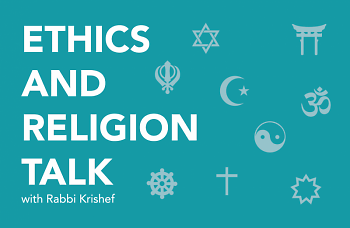Linda Knieriemen, Senior Pastor at First Presbyterian Church in Holland, responds:
I would never counsel that money and grateful participation giving to charity will resolve issues— marital or otherwise. In fact, access to abundant money is often a complicator in a relationship. What keeps couples together is strong communication, selflessness, and shared interests.
Fred Stella, the Pracharak (Outreach Minister) for the West Michigan Hindu Temple, responds:
Finances can contribute greatly to the making or breaking of a couple. But it’s not just the money itself. It is the mindsets of the people involved in the relationship. Divorce is ubiquitous up and down the socio-economic scale. And their charitable work, while noble, did not guarantee their marital bliss either. Social scientists have been telling us for decades what makes a solid marriage. Among the list of attributes is a strong motivation toward self sacrifice. One might think that the mega-wealthy are challenged in that area, as they become so used to having almost every wish and whim granted quickly.
Much also has to do with the almost complete social acceptance of divorce in our culture. The stigma is ever so slight. I recall when I was in my 30s and never married (I finally did at age 40) that people looked at me with more of a sense of judgement than if I’d been divorced. Contrast that with a conversation I had with a Hindu monk who ran a religious school in South America. I asked him about the divorce rate of the parents of his students. With great shame he acknowledged that the rate had “skyrocketed” to 10%! Can you imagine our American society today if our divorce rate tanked to 10%?
The Rev. Sandra Nikkel, head pastor of Conklin Reformed Church, responds:
The popular world view today is that money resolves all our issues and makes all our dreams a reality. This is simply not true. Look at what has happened to many people who have won the lottery and look at the lives of many singers, actors, and actresses who have lived very unhappy and empty lives.
I’d rather live by the wisdom of Jesus who warned us that the root of all evil is the love of money (1 Timothy 6:10). The fact is that money cannot buy love, respect, joy, or peace. And money will not keep a marriage together—not even Bill and Melinda Gates'. The problem is not money; the problem is that we love money so much that we dedicate our lives to its pursuit and we forget about God. Early in my youth I had to choose between loving and pursuing money or loving and pursuing God. I chose the latter and I have never regretted it. My goal has been to get to the end of my life knowing that I chose God above all else.
Father Kevin Niehoff, O.P., a Dominican priest who serves as Judicial Vicar, Diocese of Grand Rapids, responds:
The Roman Catholic Church defines marriage as a covenant by which a man and a woman establish a partnership of their whole life. Marriage is ordered to the well-being of the spouses and to the procreation and upbringing of children. Christ the Lord raises marriage between two baptized to a sacrament (cf. canon 1055).
We live in a society that thinks and believes it has a right to know everything. The ministers of marriage are the man and the woman. What went on between Bill and Melinda Gates is theirs to know.
I am not convinced Bill and Melinda Gates thought money and charity could resolve their problems. I, further, believe it is inappropriate for people of faith to speculate on Bill and Melinda, I know I do not.
My response:
At the heart of most divorces is the inability of the couple to agree on what is most important in their life as a couple. Fidelity to each other, how to spend their time (and money), the role of faith within their family, and how to raise children, are some of the issues. Frankly, I don’t know, nor do I care, why the Gates’ decided to divorce. Had both of them cared about each other enough to devote themselves to the task of repairing the marriage, they probably could have done so through counseling. But this only works if both partners are 100% committed to making changes to themselves, not to the other person, in order to strengthen the relationship. Judaism believes that the process of teshuvah – repentance, change, and bettering the self – is a lifelong process. Neither having money nor lacking money is a valid excuse to avoid teshuvah.
This column answers questions of Ethics and Religion by submitting them to a multi-faith panel of spiritual leaders in the Grand Rapids area. We’d love to hear about the ordinary ethical questions that come up in the course of your day as well as any questions of religion that you’ve wondered about. Tell us how you resolved an ethical dilemma and see how members of the Ethics and Religion Talk panel would have handled the same situation. Please send your questions to [email protected].
The Rapidian, a program of the 501(c)3 nonprofit Community Media Center, relies on the community’s support to help cover the cost of training reporters and publishing content.
We need your help.
If each of our readers and content creators who values this community platform help support its creation and maintenance, The Rapidian can continue to educate and facilitate a conversation around issues for years to come.
Please support The Rapidian and make a contribution today.
